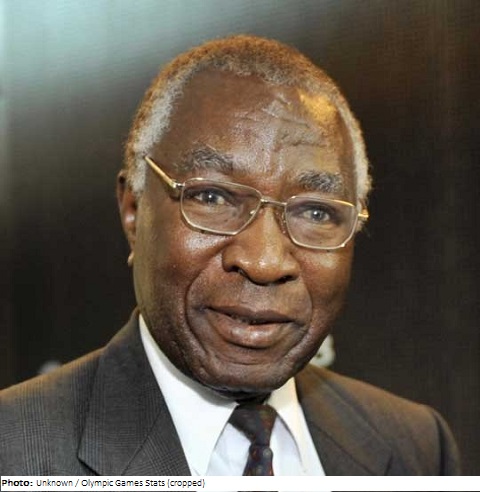Frank Nyangweso was a boxer who captained the Ugandan national team from 1958-62 and was East African Champion for eight consecutive years, from 1955-62. In addition to his 1960 Olympic appearance he won gold at the 1961 Hapoel Games and a bronze medal at the 1962 British Empire and Commonwealth Games, after being eliminated in the first round of the 1958 British Empire and Commonwealth Games. But he later became best known for sports administration and his military work in Uganda. Nyangweso graduated from military school in 1963 and quickly became a general in the Ugandan Army. In 1971 Ugandan dictator Idi Amin appointed him Army Commander and Chief of Staff. In 1975 Amin went on holiday and delegated his powers to Nyangweso, who served as acting Head of State. Nywangweso became a banker after leaving the military.
In sports, he served as Ugandan boxing team manager at the 1968 Olympics, helping Uganda win its first Olympic medal, and was Ugandan chef de mission at the 1972 and 1980 Olympics. He was President of the Ugandan Boxing Federation from 1967-72, and 1979-95, and President of the African Boxing Confederation from 1974-78 and Honorary President in 1995. He served on the Executive Board of the Association Internationale de Boxe Amateur (AIBA) from 1981-86 and was Vice-President of that Organization from 1986-2006. He was also Vice-President of the Association of National Olympic Committees from 1999-2001, and served as President of the Ugandan Olympic Committee from 1971-2009.
In 1988 Frank Nyangweso was co-opted as an IOC member, serving until his death, still as the only Ugandan IOC Member. He served as a member of the Culture and Olympic Education Commission during his entire IOC tenure, and worked with Olympic Solidarity while he was ANOC Vice-President. In 1999, Nyangweso was implicated during the Olympic Bribery Scandal that rocked the IOC, but he was exonerated after investigations.

 Uganda
Uganda UGA
UGA UGA
UGA UGA
UGA UGA
UGA UGA
UGA